
Health & Medicine
The young Australians hit hard during COVID-19
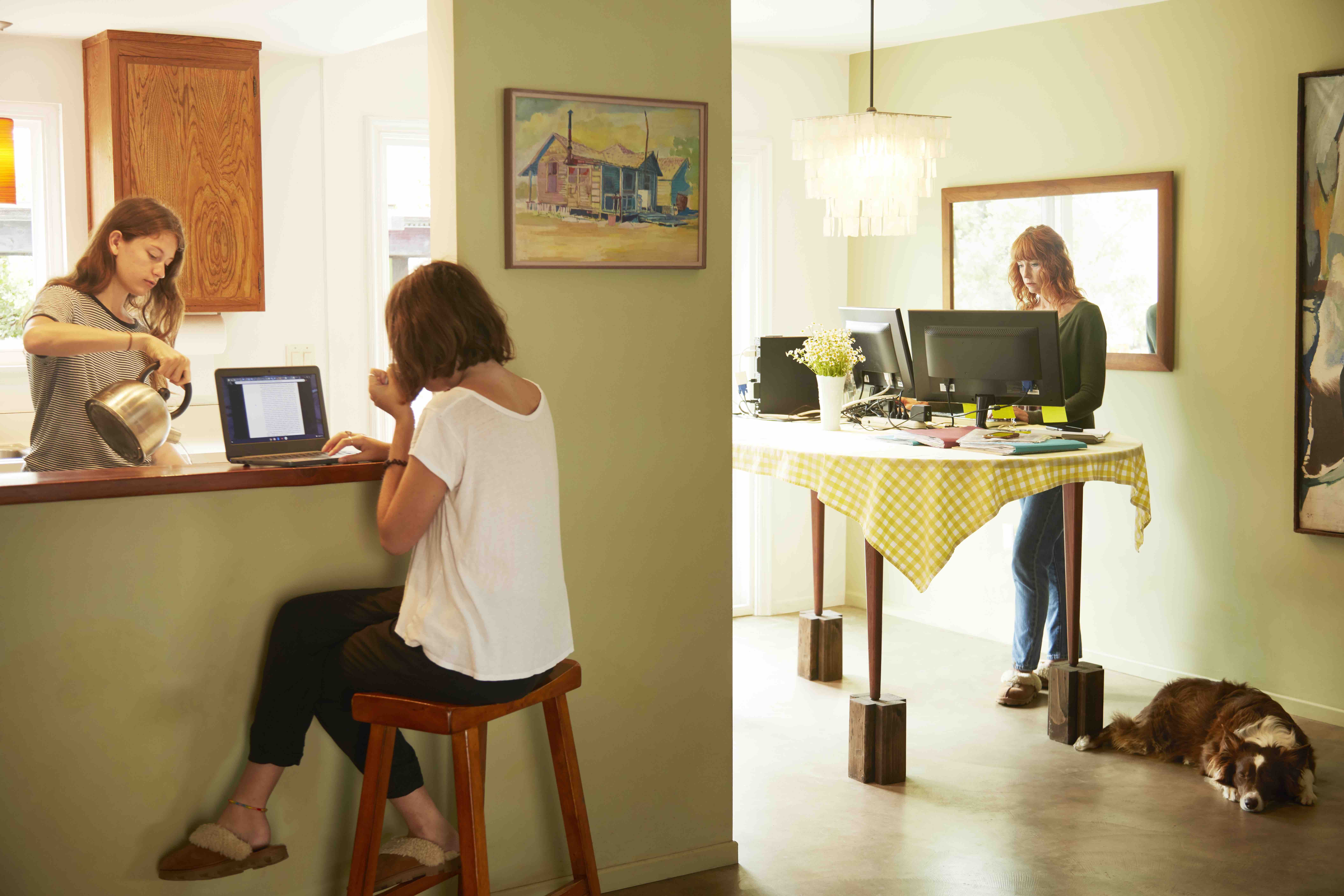
A new survey finds that many people living in share housing in Victoria are facing a precarious future as a result of COVID-19, with reports of job losses and financial stress
Published 10 August 2020
Around 74 per cent of people living in share housing in Victoria have lost their job or are working reduced hours since the beginning of COVID-19, with one in five reporting that they had gone without meals in order to afford other necessities.
That’s according to our research, which surveyed more than a thousand people who have lived in a share house in Victoria at any time in 2020.

Our survey, which we ran in June, aimed to investigate the impact of various types of socio-economic shocks caused by COVID-19 on share house occupants including income, work, mental health and housing conditions or affordability.
Understanding the scale of this impact is important as many of these people represent a vulnerable segment of the population that is largely understudied and often neglected by policy makers.

Health & Medicine
The young Australians hit hard during COVID-19
Our research aims to quantify the presence and impact of various types of socio-economic shocks caused by COVID-19 on share house occupants.
We use the term ‘shocks’ to identify events that affect an individual’s or household’s ability to function.
It is important to remember that negative socio-economic shocks can sometimes cause people to fall into poverty or homelessness, particularly individuals who don’t have access to resources to help them cope or recover.
The results of our survey were sobering, with people in share housing experiencing substantial shocks as a result of the global pandemic.
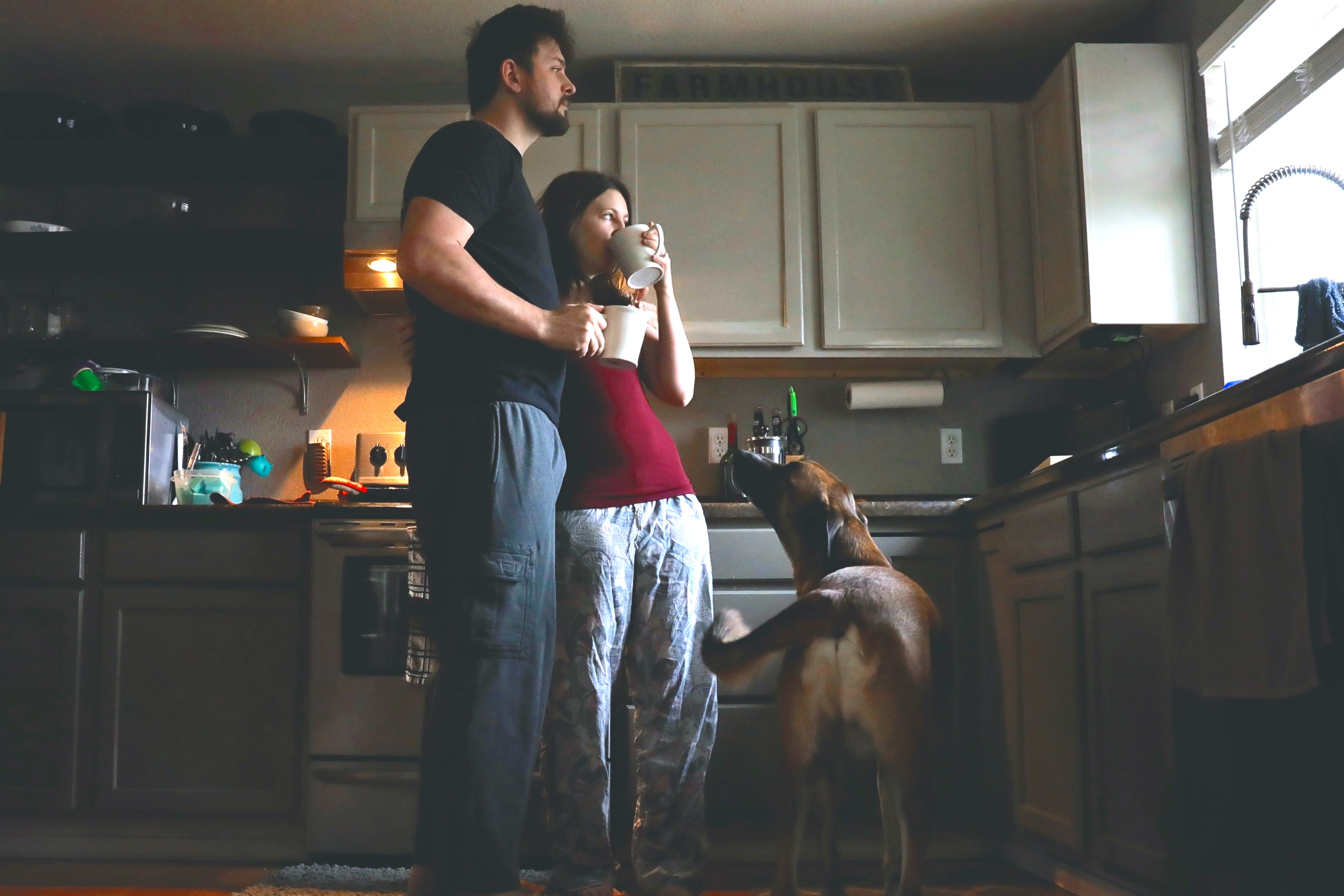
As well as job losses or reduced working hours - approximately 47 per cent reported that their financial situation had become worse or dramatically worse over this period.
Some 50 per cent report a worsening in their mental health and 22 per cent couldn’t pay their rent on time.
But COVID-19 has also caused turbulence in many share households’ structures.

Health & Medicine
What is COVID-19 doing to our mental health?
Some 39 per cent of people surveyed report a change in their housing situation since COVID-19. These changes can include moving home to family or moving in with a partner, moving to a different share house, losing housemates or taking on additional housemates.
For some, these moves have helped them manage their health, move closer to work or find a better home. But many others reported moving to cheaper homes in response to lost income or housemates moving out.
Significantly, we found that 44 per cent of people we surveyed are in housing stress – defined as paying more than 30 per cent of their income on housing costs.
But some in our survey – one in five – are spending more than half of their income on housing. This is despite 20 per cent of people successfully negotiating rental reductions with their landlords.
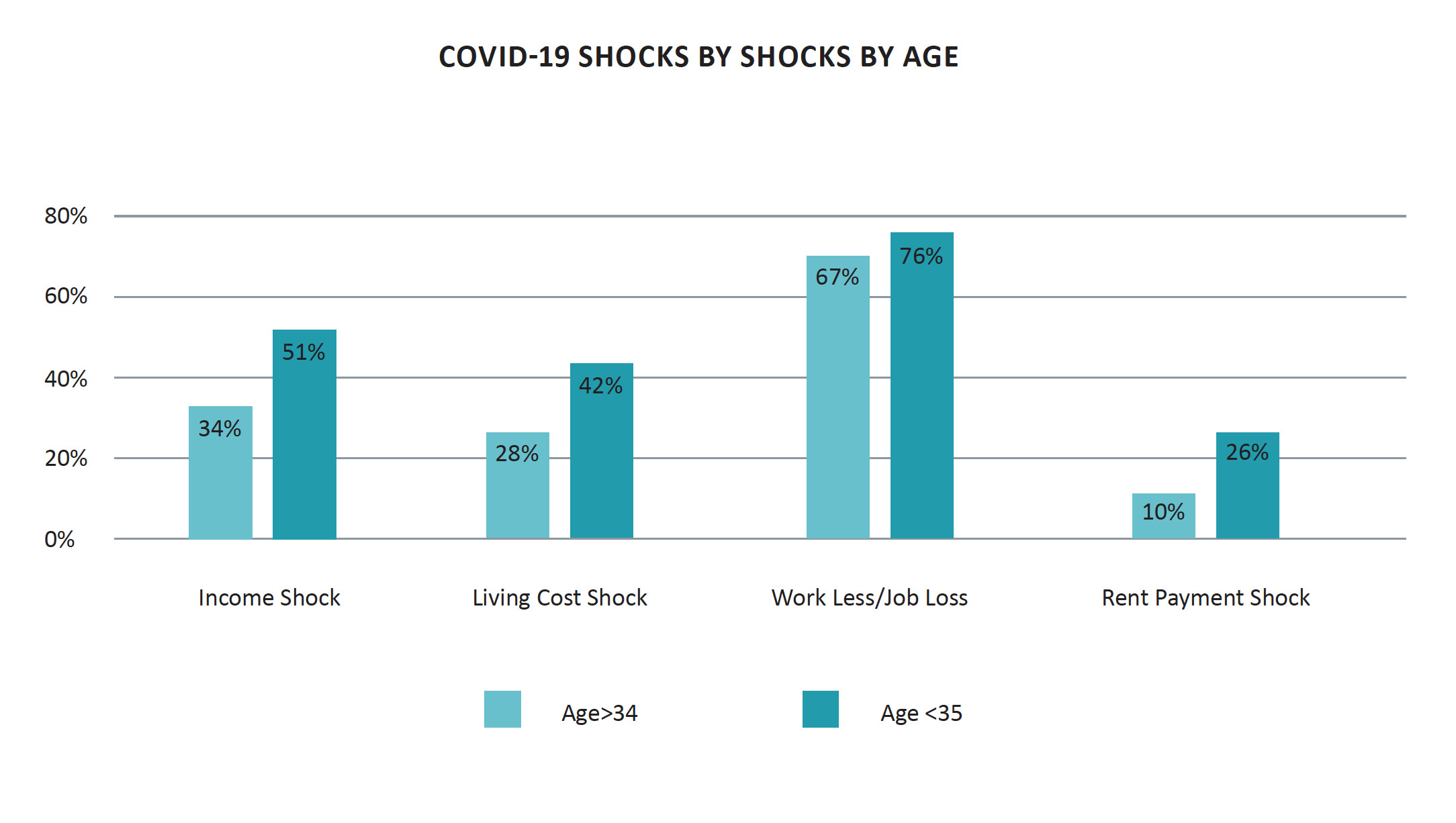
There is also a higher chance of inter-personal conflicts in share households at the moment. Almost a quarter reported “overcrowding stress” – meaning that they don’t feel they can control their space, isolate safely or use their home to meet their work, home and leisure needs.
People living in share houses are more likely to be young, employed on casual contracts, international students or living in informal housing arrangements. It makes them more at risk of homelessness and housing stress than the general population.

Business & Economics
The do’s and don’ts of bolstering your financial resilience
These are all groups of people that have fared poorly in the current pandemic and may have been struggling before the pandemic hit as well.
Within our sample – which naturally skews towards younger and lower-income people – the situation is much worse for people under 35, visa-holders and people employed on casual contracts.
As Figures 1, 2 and 3 show, these groups are far more likely to have seen their financial situation worsen, found it difficult to meet their necessary costs of living, experienced a loss of job or loss of hours and been unable to pay their mortgage or rent on time.
Our research has also found higher levels of vulnerability to these kinds of shocks for people who are indigenous, non-binary, unemployed and working part time.
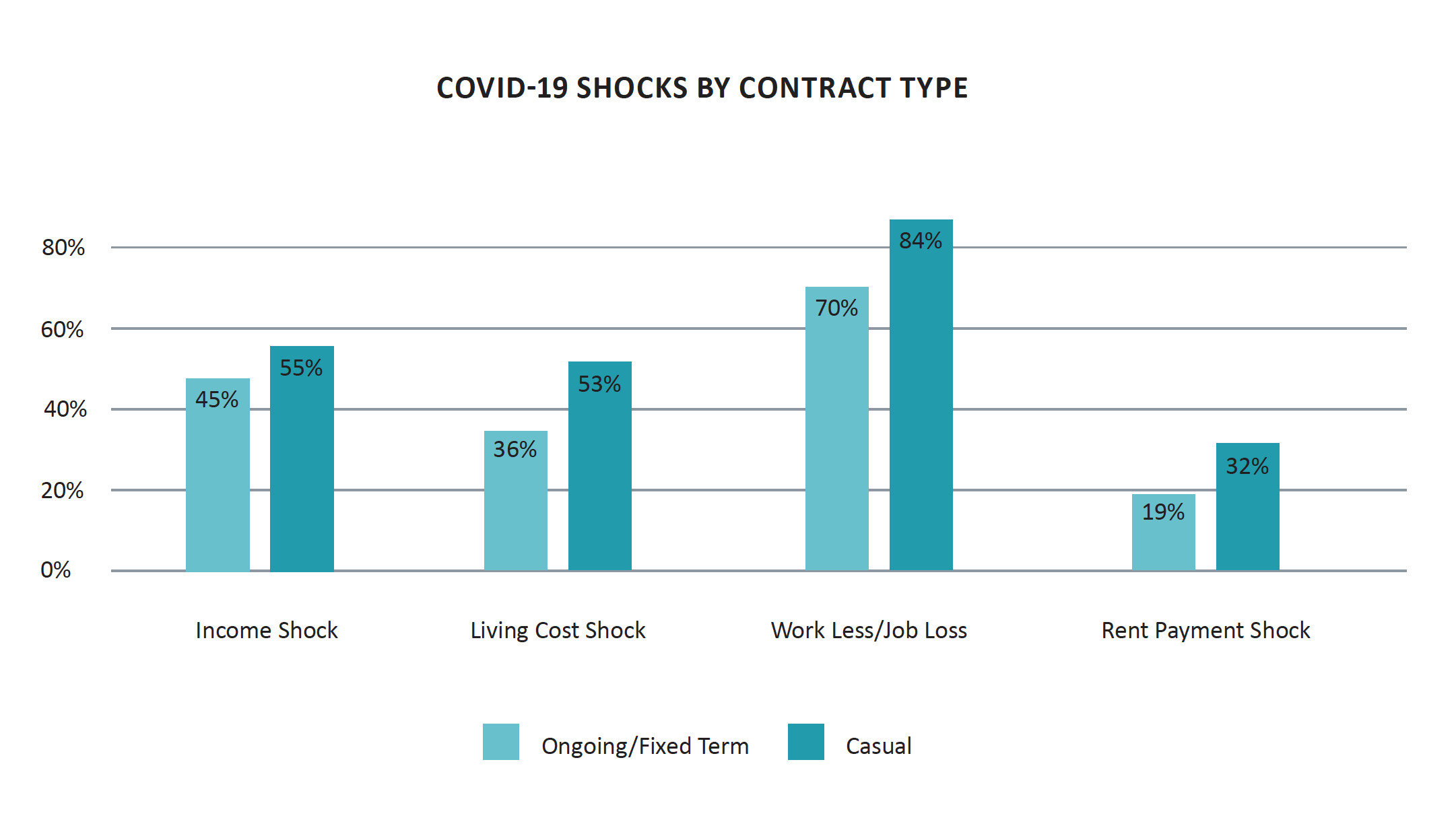
One of the concerning parts of our findings is the household’s or individual’s capacity to deal with the implications of COVID-19 – both in the short and long run.
Most members of share houses have very little in the way of personal resources or ‘insurances.’

Business & Economics
Who’s hit hardest by the COVID-19 economic shutdown?
The median weekly income in this group is $A650. Median savings are $A3,750 with almost a quarter having less than $A500 in savings. It means that a person’s ability to adapt to shocks – like unemployment or the loss of a housemate – is financially constrained.
On the other hand, we found that support from friends and family, as well as access to JobSeeker or JobKeeper payments and the International Student’s Relief payment has helped.
For example, those with access to a support network are 86 per cent less likely to have skipped a meal and 70 per cent less likely to have been unable to pay their rent or mortgage on time.
While access to JobKeeper or JobSeeker payments is associated with a reduction in negative shocks by 51 per cent.
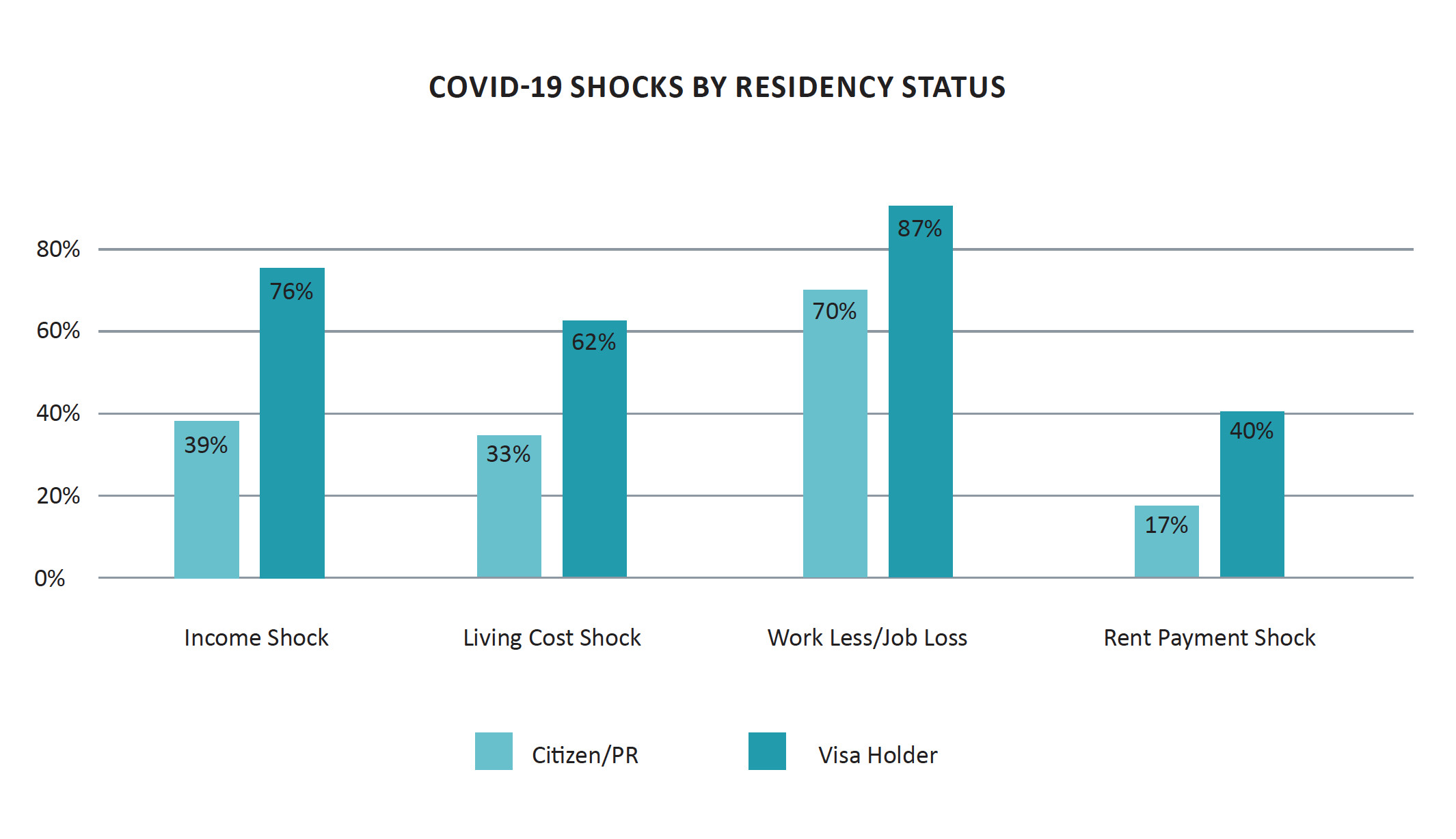
The findings from this study are extremely concerning.
Twenty-two per cent of respondents couldn’t meet their rental or mortgage payments on time in the last three months; and almost a quarter aren’t confident they will be able to meet their housing costs over the next six months.

Business & Economics
JobSeeker and JobKeeper in post-COVID policies
This has significant implications, not only for this group of people but also for the functioning of housing markets and social welfare systems more generally.
The end of Australia’s six-month eviction moratorium will be a precarious time for renters, particularly for the 20 per cent of share house occupants in our sample without a formal lease arrangement or a lease shorter than six months.
Recent announcements that JobKeeper payments will be extended is welcome news, but the dramatic decrease in JobSeeker payments will put this already stretched group of people under further pressure.
COVID-19 is exacerbating existing economic inequalities and the negative impacts of housing precarity and employment precarity are increasingly obvious.

In terms of managing public health and economic risks in complex combinations, people in these households share vulnerabilities with each other and need to manage isolation outside of ‘traditional’ family or relationship structures.
Unlike low income renters in the social housing system, most people in share housing receive limited support and little security of tenure. Going forward, these are people who will likely need targeted housing and employment support.
COVID-19 is impacting everyone but those who are young, casually employed and/or visa holders are likely to be suffering the most during the pandemic and, potentially, well into the future.
Banner: Getty Images